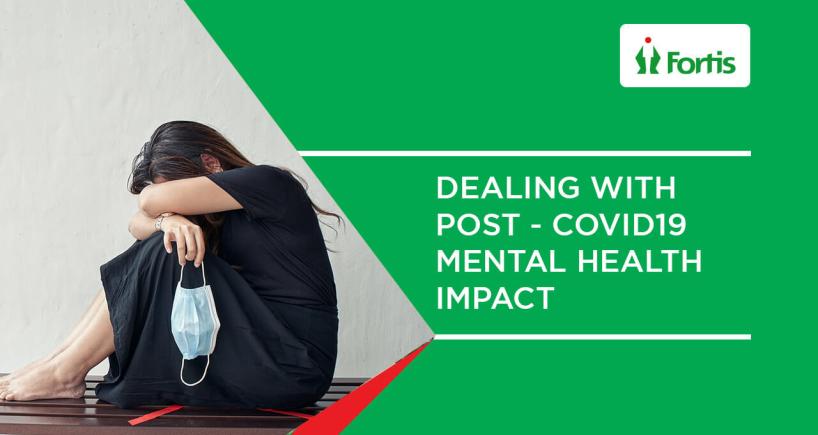
Dealing With Post - COVID19 Mental Health Impact
When COVID19 pandemic swept our nation, the initial response was quite rightly focused on tackling the virus itself. However, over time, we comprehended the long-term consequences of COVID19 on people’s mental health - most causing more distress and suffering than the virus itself.
The pandemic affected low socio-economic groups, migrant workers and daily wage earners through economic loss, financial loss, job insecurity, increasing likelihood of Substance Abuse, domestic violence, and increased suicide rates. Self-isolation was one of the major causes of negative impact on our mental health. The uncertainty of the duration of the pandemic, loss of freedom, boredom and separation from loved ones are some of the factors causing mental health issues among people.
Most adults experienced a mix of emotion. Few of the concerns have been low mood, fear, nervousness, irritability, anger, frustration, boredom, emotional exhaustion, feeling stressed, numbness, and insomnia. Many quarantined persons may experience these problems which may or may not amount to a diagnosable mental health disorder, nonetheless, they need to be identified and addressed.
Mental health issues observed in children were related to separation from family, loss of routine due to the lockdown, isolation from friends, and caregiver death.
This caused anxiety, sadness, grief and fear. Social Isolation, quarantine, and loneliness due to facility closure (for e.g. shutting of schools, community centers and institutions) caused loss of connection with teachers, friends, peers, and lack of access to usual support systems. This reduced physical activity and increased screen time from virtual learning, socializing, gaming and digital media use.
Languishing that is a sense of stagnation and emptiness was mostly observed in young adults. They expressed having excessive worry about future careers due to delay in competent examinations, lack of entry level jobs and cancellation of social events such as concerts, sports, restaurants etc.
Prior trauma and mental health disorders exacerbated the pandemics effects by interfering with access to ongoing mental health treatment, which was previously available. Other factors such as financial instability and insecurity about like food or housing were additional challenges. These led to behavioral changes such as anxiety and depressive symptoms. People were constantly having frequent mood changes, irritability, withdrawal from social interactions and emotional numbing.
Many people experienced physical symptoms such as fatigue, headaches, or stomach aches that could not be medically explained. It was also noticed that they had started having disordered eating habits, sleep disturbances, including un-restful sleep, trouble falling asleep and middle of the night waking. As clinician we also observed an increase in symptoms of post-traumatic stress disorder.
At the same time, healthcare providers faced extreme burnout due to long working hours, worry about risk to self and family, concerns about inadequate personal protection, and separation from family/loved ones. Older adults had challenges of higher risk of relapse or worsening of symptoms of pre-existing medical and mental health illnesses. This was because of restrictions in mobility, lack of exposure to sunlight, and aid to healthcare services.
The long-term effects of the pandemic, has helped us understand the importance of mental health. A major learning outcome has been to promote psychological first aid, increase self care and to encourage people to reach out to a mental health professional.
By Ms. Deekshaa Athwani
Consultant Clinical Psychologist
Categories
Clear allMeet the doctor

- Mental Health and Behavioural Sciences | Clinical Psychology
-
6 Years
-
1500



















